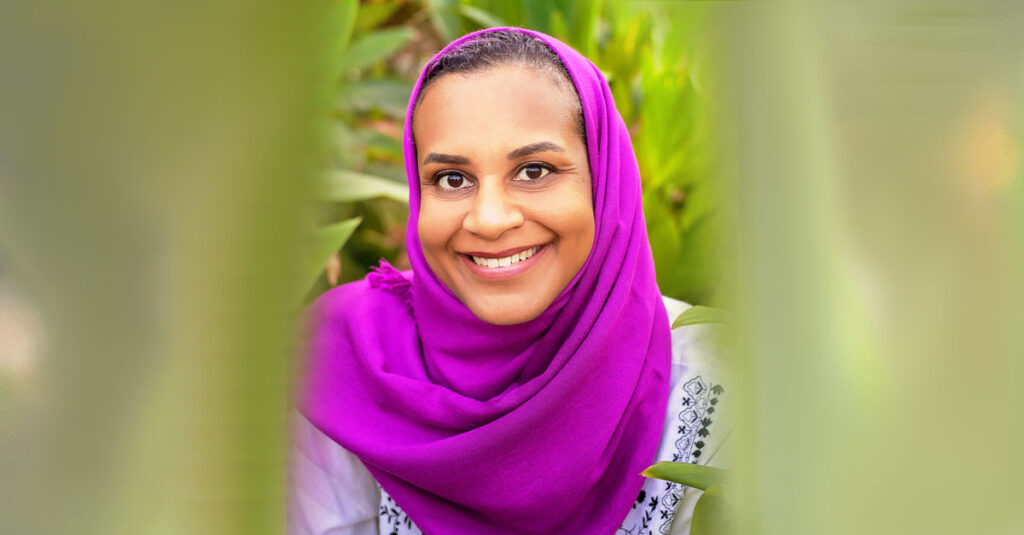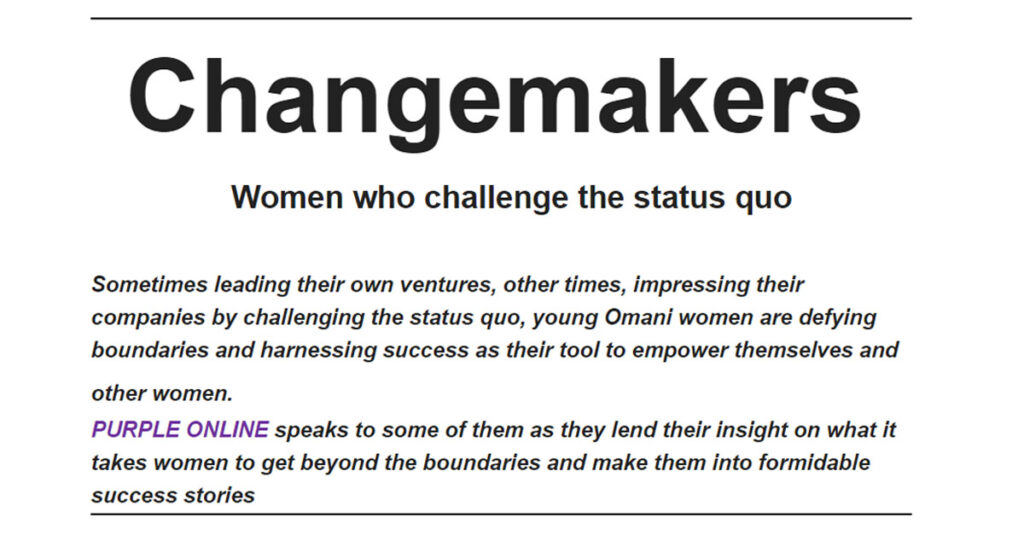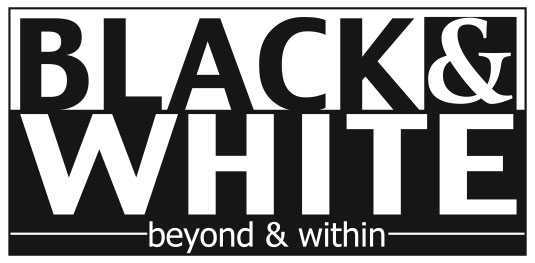
Ghaya Mohammed Ali Al-Barwani, a well-known corporate and business leadership coach and trainer, seems as though she is not mincing words when she states that “it will take 100 to 300 years for women to reach parity with their male counterparts”.
Not a woman, but a societal issue
Her statement reflects her no-nonsense approach to life. And she adds more power to her bold but practical statement by noting: “This is not a “woman” issue — it is a societal issue that needs to be addressed as such and will gain momentum when all of us, male and female alike work together to bridge the gap.”
Be aware of biases and prejudices
“We all need to be aware of our biases and prejudices against men and women, in order to help redress the issues,” she adds.
She recounts her recent discussion with a male leader, “who proudly boasted that most of his team were women, so I shouldn’t discuss gender inequality with him”. “My response was simple – how many times did you invite your female direct reports for a cup of coffee to just relax, the way you have with your male direct reports? This simple additional contact with the male direct report will naturally bias the decisions that this male leader takes in the future when it comes to assigning challenging and interesting projects,” she pointed out.
Excerpts:
Women across the world in companies often get into what is termed ‘gender double bind’ – when they become aggressive in their work, they are ‘insensitive’, when they exercise empathy, they are ‘indecisive’. Does it bother you?
Aggression is insensitive and unacceptable from a man or a woman. Instead, they should be ‘assertive’. I have heard both men and women get called ‘insensitive’ and/or ‘indecisive’. The lack of sensitivity is not something that comes with assertiveness nor does indecisiveness come from empathy; I can be assertive and empathetic and this is my prerogative as a leader, whether I am male or female.
There is no denying that some behaviours in woman can be criticised more harshly than if they came from a man: Recently, I read a piece of research from 2019 showing that women are penalised for being funny at work. It used to bother me and now I use it to my advantage ensuring that I deliver the results I want with empathy and compassion.
The global pandemic was a sphere in which women leaders showed their mettle. What is this essence of a woman that helps them dismantle the usual narrative and help them veer their companies from disaster to success and beyond?
Great leaders, whether they are male or female, have the ability to influence, encourage and drive teams and organisations into action despite challenges and obstacles. This is done by understanding the individuals’ needs and being able to galvanise them into action. Great leaders also understand that the days of the “heroic individual” are gone; the future will be led by teams. Women have been trained from a very young age to understand social dynamics and the needs of the people around them; traditionally to enable them to become better mothers, wives and members of the community and this ability that is ingrained in them is what supports them in leading “heroic teams”.
Many qualities of women come to the fore in a crisis – how do they (or you) transpose this into the work ecosystem?
With the increased volatility, uncertainty, complexities and ambiguity of the world around us comes the need for ambidextrous strategic thinking; the ability to think and act long term and short term in order to ensure that the short term is taken care of without harming the long term. I work with leaders and teams to help optimise leadership development as well as optimise and empower teams to create a coaching culture that allows the individuals involved and the organisation stay relevant.
The crisis may be over, we are now dealing with the shell-shock effect of the aftermath; businesses that need rebuilding; teams that need to get to know one another again and in some cases some team members were recruited and never met their colleagues. We spent 18 months in fear cooped up and worried; watched people we care about lose their lives and their livelihoods. We need to look at the “Keep Calm” campaigns that were initiated in the UK during the Second World War and use that as the motto to embrace the whole person when dealing with individuals and the whole team identity when dealing with teams to create the psychological safety needed to move forward.
While you may argue that women are at present ruling the world, when will the time come when they will, without a doubt, rule the world?
Women are not at present ruling the world; they are and have always taken care of a large chunk of it. I cannot say when women will rule the world, depending on the research paper you read (based on the number of countries included in the research) it will take from 100 to 300 years for women to reach parity with their male counterparts. This is not a “women” issue; it is a societal issue that needs to be addressed as such and will gain momentum when all of us; male and female work together to bridge the gap.
We all need to be aware of our biases and prejudices against men and women in order to help redress the issues. I recently had a discussion with a male leader who proudly boasted that most of his team were women, so I shouldn’t discuss gender inequality with him, my response was simple – how many times did you invite your female direct reports for a cup of coffee to just relax, the way you have with your male direct reports? This simple additional contact with the male direct report will naturally bias the decisions that this male leader takes in the future when it comes to assigning challenging and interesting projects.
What are the fundamental characteristics that help a woman shine in the corporate world?
When a man or woman is clear on what makes them a leader and is clear on their strengths and their areas of development and is able to see the beauty within them; then they can consistently deliver successful results with empathy and compassion. Like I said at the beginning, assertiveness and empathy are not mutually exclusive.
About:
Ghaya Barwani, PCC, business and corporate leadership coach and trainer, partnering with leaders, executives and teams to become the positive change agents and leaders they are.
(PCC – Professional Certified Coach credentialed by International Coaching Federation (ICF))


0 Comments